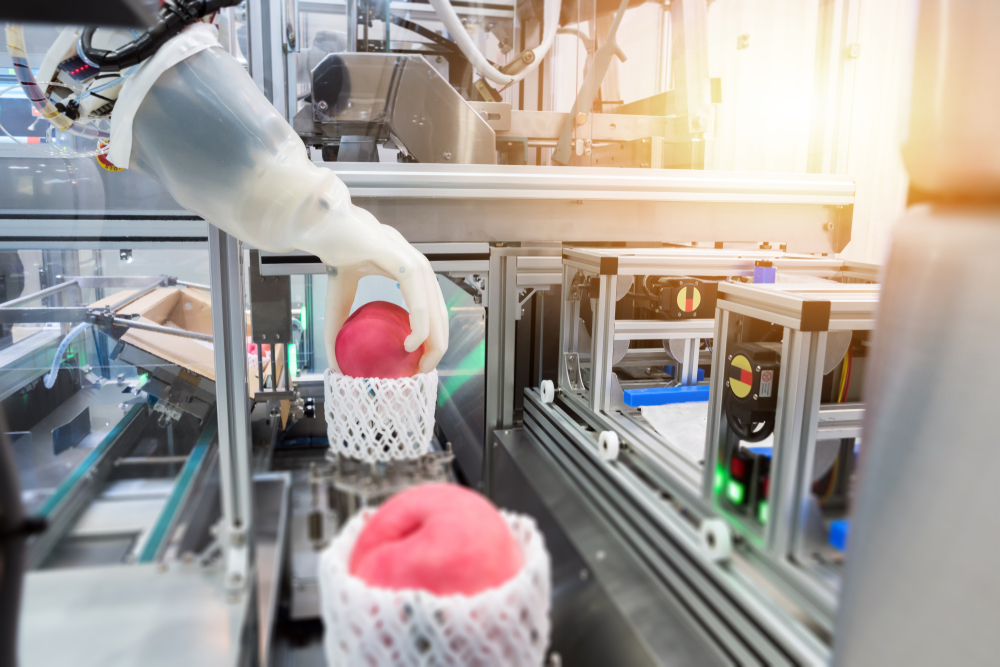Decentralized Manufacturing: Revolutionizing Production Paradigms
The convergence of advanced technologies and shifting consumer demands is ushering in a new era of manufacturing. Decentralized manufacturing, a model that distributes production across multiple smaller facilities, is emerging as a game-changing approach. This innovative strategy promises to reshape traditional industrial landscapes, offering enhanced flexibility, reduced lead times, and improved sustainability. As businesses seek to adapt to rapidly evolving markets, decentralized manufacturing presents both exciting opportunities and complex challenges.

The roots of this shift can be traced back to the early 2000s when rapid prototyping technologies began to mature. As 3D printing evolved from a prototyping tool to a viable production method, it opened the door for more localized, on-demand manufacturing. Concurrently, the growth of e-commerce and personalized products created a demand for faster, more adaptable production methods that traditional centralized manufacturing struggled to meet.
Key Drivers of the Decentralized Model
Several factors are propelling the adoption of decentralized manufacturing. First, advancements in automation and robotics have made it possible to replicate complex manufacturing processes in smaller facilities without sacrificing quality or efficiency. This technological leap allows companies to establish multiple production sites closer to their end markets.
Second, the increasing demand for customization and personalization is pushing manufacturers to adopt more flexible production methods. Decentralized facilities can quickly adapt to local preferences and produce smaller batches economically, a significant advantage in today’s consumer-driven market.
Third, global supply chain disruptions, highlighted by recent events like the COVID-19 pandemic, have exposed the vulnerabilities of centralized manufacturing. Decentralized models offer greater resilience by diversifying production across multiple locations, reducing the risk of total supply chain failure.
Operational Benefits and Challenges
Decentralized manufacturing offers several operational advantages. It significantly reduces transportation costs and lead times by bringing production closer to the point of consumption. This proximity not only improves responsiveness to market changes but also enables better inventory management and reduced warehousing needs.
Moreover, smaller, localized facilities can more easily implement sustainable practices and adapt to regional environmental regulations. They often have a lower carbon footprint due to reduced transportation and can utilize local renewable energy sources more effectively.
However, the transition to decentralized manufacturing is not without challenges. Coordinating multiple smaller facilities requires sophisticated logistics and communication systems. Ensuring consistent quality across different production sites can be complex, necessitating robust quality control measures and standardized processes.
Impact on Business Models and Strategy
The shift towards decentralized manufacturing is prompting a reevaluation of business models and strategies across industries. Companies are reassessing their supply chain networks, considering how to balance the benefits of localized production with the efficiencies of centralized operations.
This model is particularly appealing for businesses operating in industries with high variability in demand or those requiring rapid product iterations. For instance, fashion retailers are exploring decentralized manufacturing to respond quickly to trends and reduce unsold inventory.
Additionally, decentralized manufacturing is fostering new business opportunities. It’s enabling smaller companies to compete more effectively with larger corporations by offering localized, customized products. It’s also giving rise to new service-based business models, where companies offer decentralized manufacturing as a service, allowing other businesses to access distributed production capabilities without significant capital investment.
Technological Enablers and Future Prospects
The future of decentralized manufacturing is closely tied to ongoing technological advancements. Artificial intelligence and machine learning are enhancing the ability to manage distributed production networks efficiently. These technologies enable predictive maintenance, optimize resource allocation, and improve quality control across multiple sites.
The Internet of Things (IoT) plays a crucial role in connecting decentralized facilities, enabling real-time data sharing and synchronized operations. This connectivity ensures that production can be coordinated effectively across different locations, maintaining efficiency and consistency.
Looking ahead, emerging technologies like advanced materials and nanotechnology could further revolutionize decentralized manufacturing. These innovations may lead to even more compact, versatile production units capable of producing a wider range of products in smaller facilities.
Implementing Decentralized Manufacturing: Key Considerations
• Assess your product portfolio to identify items suitable for decentralized production
• Analyze market demand patterns to determine optimal facility locations
• Invest in flexible, scalable manufacturing technologies
• Develop robust quality control systems that can be replicated across facilities
• Implement advanced inventory management and demand forecasting systems
• Train a versatile workforce capable of managing diverse production needs
• Create a strong data infrastructure to ensure seamless communication between sites
As industries continue to evolve, decentralized manufacturing stands poised to play a pivotal role in shaping the future of production. By offering enhanced flexibility, improved sustainability, and greater resilience, this model addresses many of the challenges faced by traditional manufacturing approaches. While the transition presents significant challenges, the potential benefits make it an compelling option for forward-thinking businesses. As technology continues to advance and market demands become increasingly diverse, decentralized manufacturing may well become the new standard in industrial production strategies.





